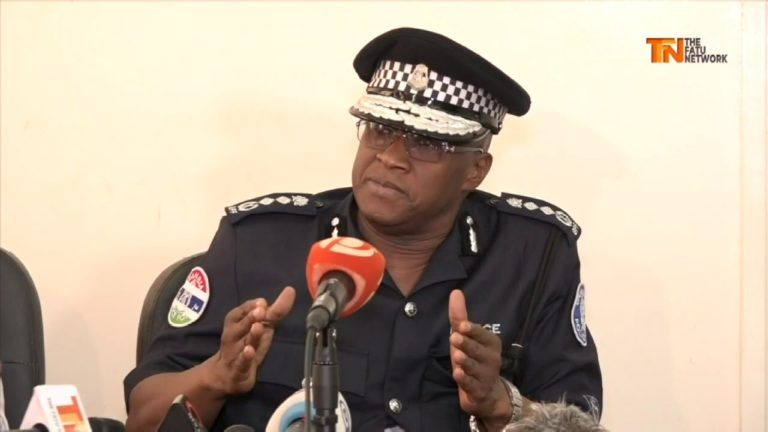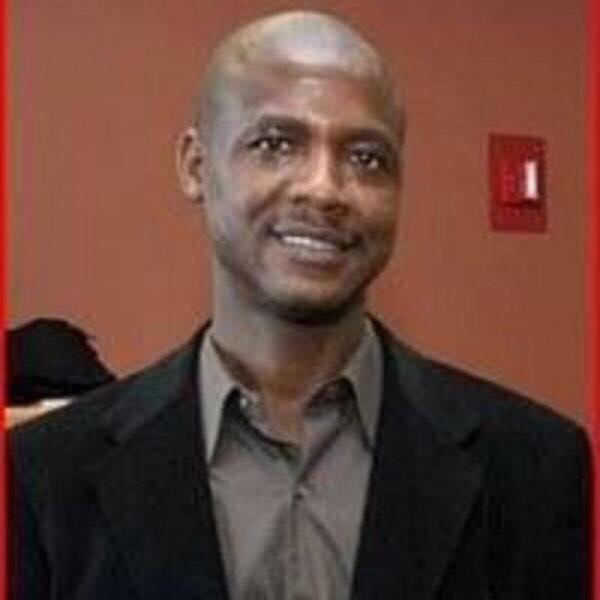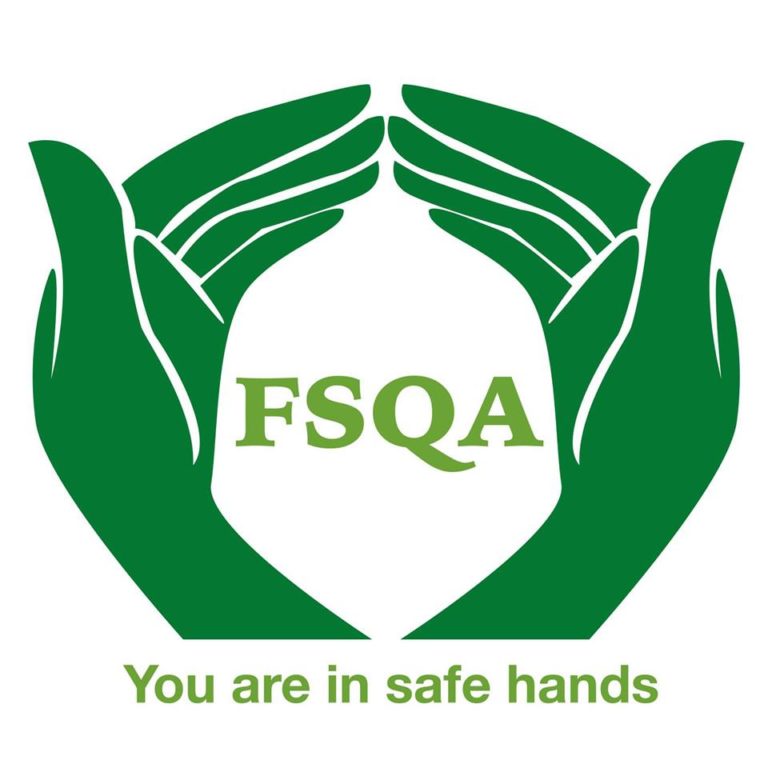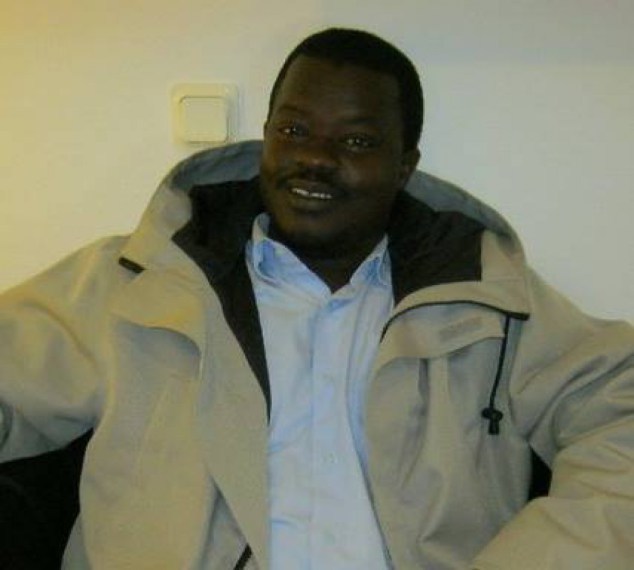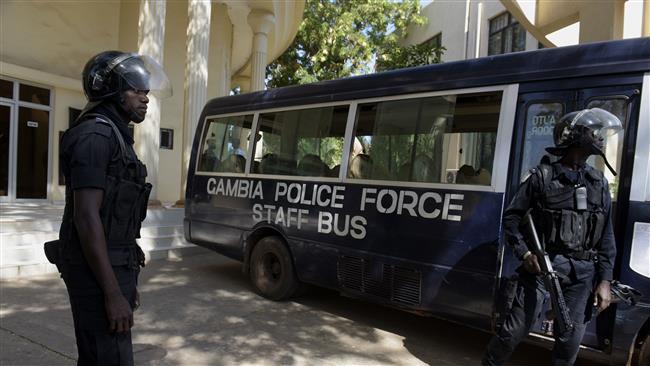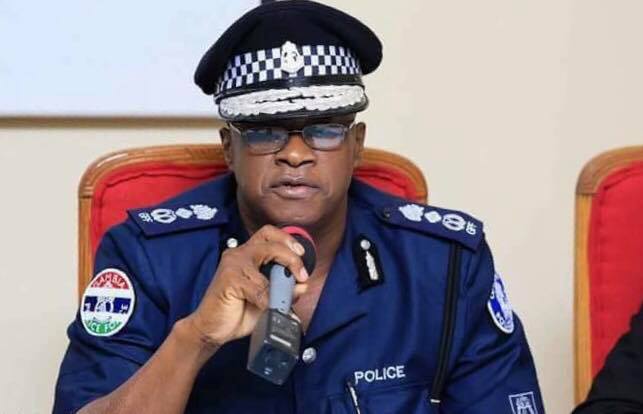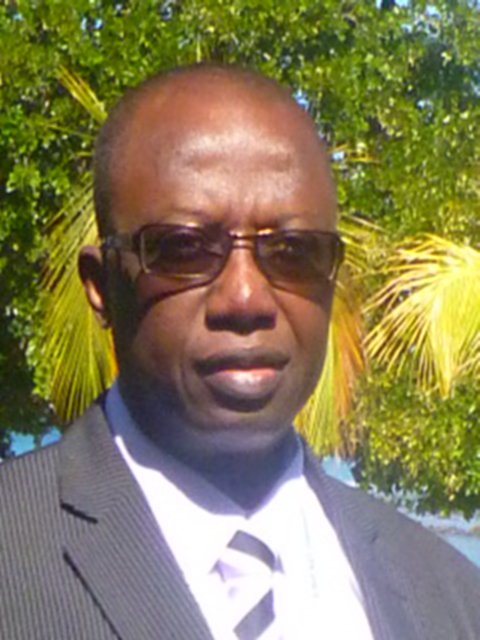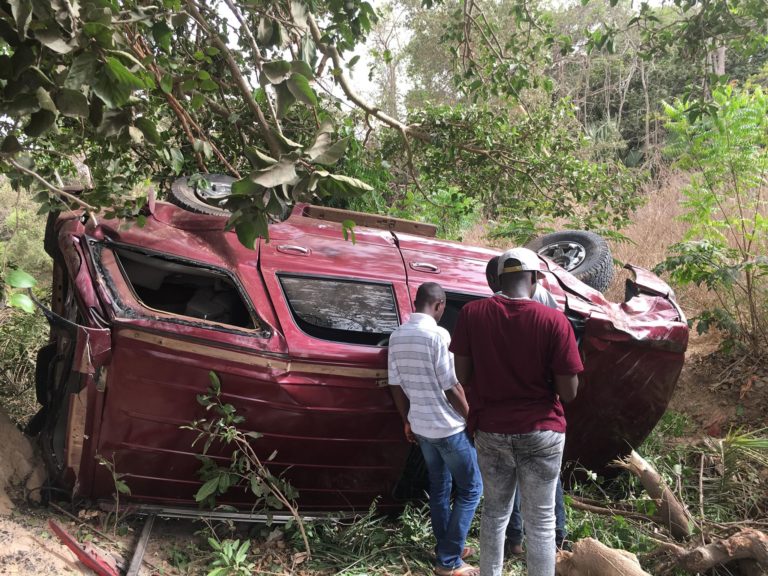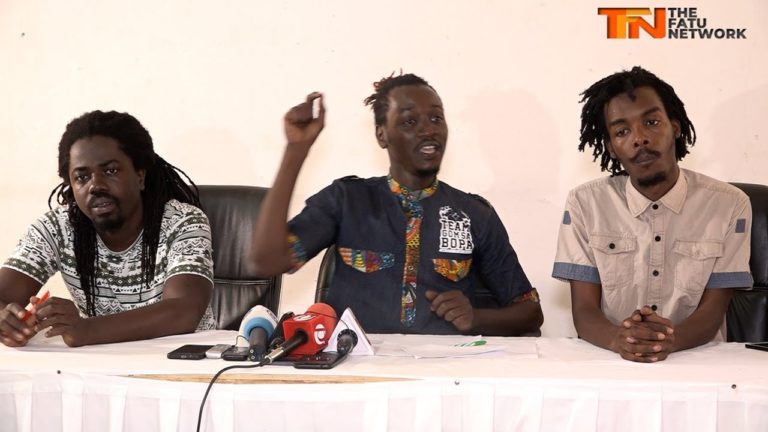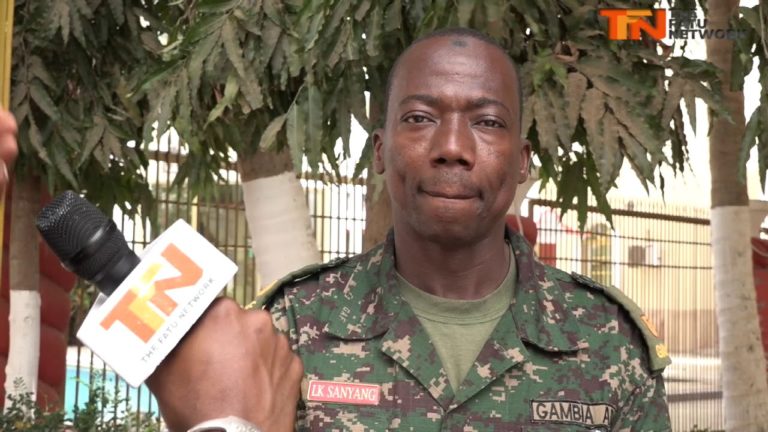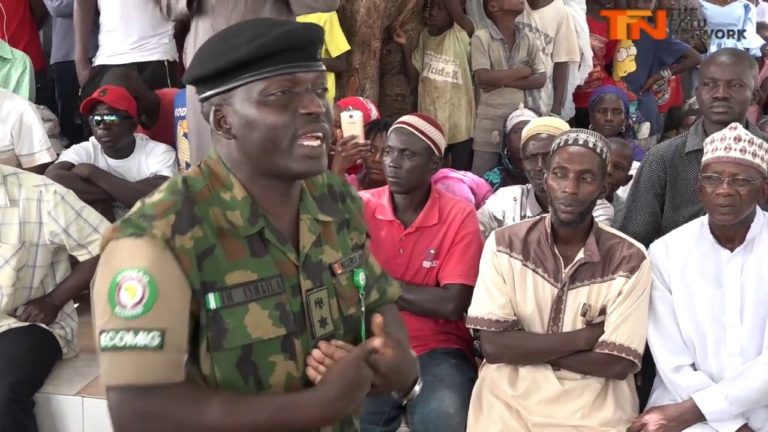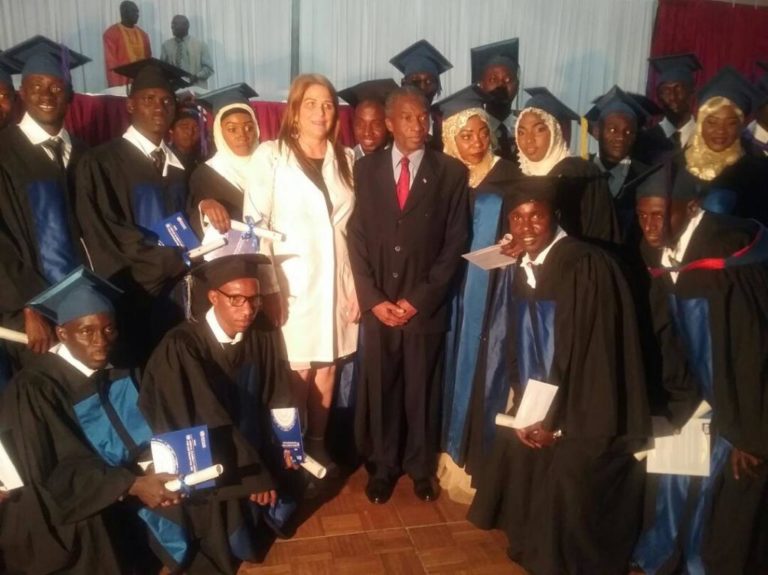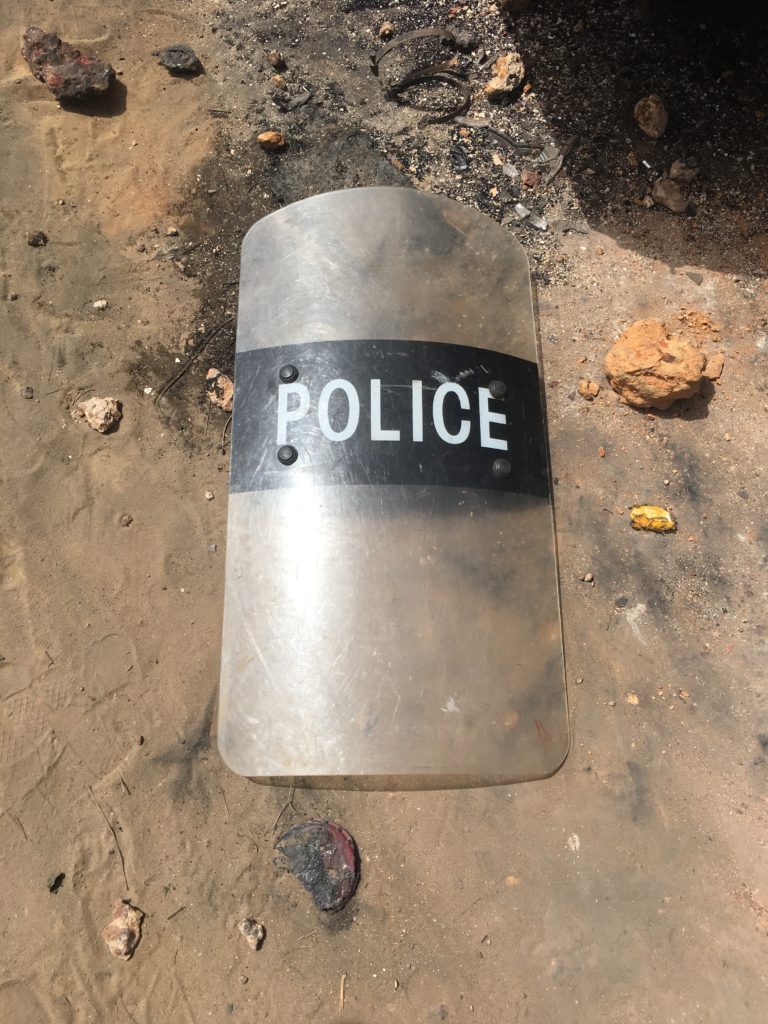The acting Inspector General of Gambia Police Force, Mamudu Jobe, has said the officers involved in Faraba incident will appear in Court before end of week.
Dear Middle-Class Gambians:
You do not have the simple luxury of accepting the death of unarmed civilian protestors, activists protecting their environment from corporate greed as natural, even if it may be so. If you have your eyes anywhere near half-open, your ears unclogged enough to hear just a whisper, your soul live enough to feel the faintest heartbeat, then you cannot pretend you live in a normal environment.
If you’re getting up every morning with a happy yawn of middle-class contentedness, then you’re probably among thousands in Gambians who probably see the darkness of despair every day, but you’d rather pretend it’s only the dark shadow of a passing cloud. You probably hear the muffled cries of forgotten citizens every day, but you’d rather pretend it’s the passing sniffles of seasonal poverty. You probably feel the sighs of a people weighed down with dead dreams, but you’d rather pretend it’s the passing sag of temporary weariness.
The environment you pretend not to see breeds a fog of apathy that with time becomes a jungle of heartless survival for the class that is ruled. Robbery, killings, kidnappings, rapes and silent victims are a daily staple in the slums and the dark city inferno that rises with the night. I’ve seen it, I know it, I’ve walked in it, I’ve been snatched by it, I’ve survived it. So, have thousands of others. Daily. It’s not a secret world, but we’d rather pretend it is so that we can wake up in the morning and post a smiling selfie that is thankful to God for the blessing of life. The artificial world of social media is the newest, most potent opium of a broken people.
Meanwhile, the rulers haggle for power in the ruthless markets of cartel politics. When one of them dies, there’s nothing normal about it, simply because the environment he or she lived in is not normal. Remember, they leave behind a long stretch of unresolved assassinations; a pile-up of stolen money and bitterness packaged into neat boxes of meaningless prayer; a valley of silenced voices and forgotten victims; an endless echo of troubled heartbeats that are always a beat away from eviction, starvation and joblessness. We must stop piling up pretentious prudery and demand a normal environment fit for all citizens; an environment where living in simple dignity allows us all the luxury of dying naturally.
NO EVIDENCE OF CONTAMINATED RICE IN THE GAMBIA
The Food Safety and Quality Authority (FSQA), is dismayed by the widespread speculations about the presence of contaminated ‘dana rice’ in the country, and wishes to dismiss the rumors as false.
The Authority made inquiries to ascertain the veracity of this information and found out, that this rumor mill emanated from a particular Trinidadian Facebook page in Trinidad and Tobago and has nothing to do with the Gambia. Nonetheless, the news was imported and circulated on local mainstream media by certain habitual fault-finders to cause panic.
FSQA, urges these forces to desist from peddling such demeaning and unconfirmed pieces of information on the public domain to cause unnecessary alarm. It also calls on all and sundry, to not hesitate to make inquiries about such rumors before sharing them to the public.
The public is hereby urged to be wary of these and other speculative information by looking out for specific details whenever they are published.
For instance, the type of contaminants mentioned (if there is any), how the product arrive into the country, where it can be found, who brought it in country, as was in the case of this rumored contaminated rice.
Be reminded that our hardworking inspectors along the main entry points will remain vigilant and make sure no stone is left un turned, when it comes to confiscating unwholesome products like these.
Furthermore, the public is by this release, urged to remain calm and be assured of our unalloyed resolve to keep the country free from contaminated products. Finally, the Authority also wishes to bring the attention of the business community, about certain individuals who go round to sell registration certificates at various prices to them, this is a fraudulent act which is punishable by law.
FSQA shall remain vigilant over this and any other food issue. FSQA can be contacted on 4466797 or on E-mail: [email protected] or [email protected], better still; you can visit us at our main office in Kotu East for more information.
Upholding the Law…
The Constitution is what binds us all together. It is the one thing that we have all, together agreed on that will guide our dealings with each other. It serves as an arbiter when we have to deal with one another. We cannot all have the same opinion on any one thing but we are all united on the supremacy of the law.
Thus, when the constitution says that one should not be detained for more than seventy two hours without either being taken to court or released, it is for the purpose of upholding the Rule of Law. This is the law and we can’t ignore it when it suits us and try to uphold it when it suits us.
More than four or five days ago, officers of the Police Intervention Unit were detained for allegedly using life bullets in Faraba leading to the death of at least three people and injuries to a number of people.
Since then, Mr President, you have indeed risen to expectations and set up a Commission of Inquiry into that incident. You have also appointed a coroner to determine the cause of death of the deceased. These steps are commendable.
However, the fact that these officers have still not been charged or released is worrying. Of course it is understandable that there may be complex issues relating to this incident and that perhaps authorities have a genuine reason to hold these officers in custody, that has to be weighed against contravening the constitution.
The good news is that the constitution has provided a solution to such difficulties when we are in such a dilemma. It is clearly stated that when the authorities need to keep a suspect in custody beyond the stipulated seventy two hours, they should seek such permission from the courts.
Your government has shown clearly that you will not interfere with the courts and that our justice system is – will continue to be – as independent as they should be. Thus, it will be correct and commendable for the IGP to seek such injunction from the courts. This will serve double purpose. It will send a clear signal that your government is upholding the Rule of Law and as well protect the rights of the suspects.
This is what will bring faith in your government so that everyone in the country will have the full confidence that his/her rights will always be protected and that no one will violate their rights. That confidence is what will enable everyone have peace of mind and keep the peace.
I therefore suggest that the officers of the PIU who are in custody be either charged or released. This us what will ensure that your government is not accused of human rights violations.
Have a Good Day Mr President…
Tha Scribbler Bah
A Concerned Citizen
Office Of The IGP Confirms Jobe’s Appointment As Acting IGP, Says He Has No Mandate To Appoint DIG
The office of the Inspector General of Police wishes to inform the general public that, with effect from Monday 25thJune, 2018, Alhagie Mamour Jobe the former Deputy Inspector General of Police has been appointed Acting Inspector General of Police by His Excellency President Adama Barrow.
In the same vein, the office of the IGP through the it’s Public Relations Office takes this opportunity to inform the general public that the office of the IGP has not made any form of internal arrangement in appointing a Deputy Inspector General of Police and Assistant Inspector Generals of Police as speculated and rumored in the social media.
It is important to note that the office of the IGP has no legal mandate to appoint a DIG, that only the President of the Republic has the powers and mandate to appoint a Deputy Inspector General and make approval of the appointment of Assistant Inspector Generals of Police.
‘No person(s) will be tolerated to engage in protests without the requisite permit’-Office Of The IGP
PRESS RELEASE
The office of the Inspector General of Police hereby informs the General Public that any group, be it Civil Society Organizations, Public or Private Institutions, Pressure/Interest Groups, etc. who intend to embark on demonstrations must inform the office of the IGP by way of a written permit request to demonstrate.
The request for the permit should stipulate location, date, time and reasons for such demonstration. It’s important to note that no person(s) will be tolerated to engage in such without the requisite permit.
The office therefore, solicits the understanding and cooperation of the general public in these regards.
Unethical and Unreliable Practice of Journalism:
By any objective analysis, this is a new low and unprecedented in the history of Gambian journalism and in our politics. This is no longer about policy, civility, decency or even temperament. This is a direct threat to violence, hate speech, platform for broadcasting of hate and incitement to violence, misinformation, and direct threat to individuals. It is not just against the norms of Gambian politics and journalism, this raises a serious question of whether it is ethical practice of the craft. If any other citizen had raised about unethical journalism, would the Gambia Press Union be investigating?
To anyone who still pretends this type of journalism in the Gambia is normal journalism and politics, history is watching. And I suspect its verdict will be harsh. Many have tried to do a side-shuffle and issue statements saying they strongly disagree with those rhetoric but still support their political leaders. That is becoming woefully insufficient. The rhetoric is the unethical behavior and practice of journalism.
Professionals in every field of endeavor, by their training, are assumed to be capable of making judgements and applying acquired skills to arrive at informed decisions while dealing with their clients.
In journalism, dealing with a mass clientele that requires timely, and credible information to make socio-political and economic decisions, especially in a democracy, imposes a huge responsibility on practitioners to come across always, as dependable allies in the tasks of human development and nation-building.
Across many nations of the world, codes of ethics for journalists otherwise known as canons of journalism, share common principles of truthfulness, accuracy, objectivity, impartiality, fairness and public accountability in news gathering and dissemination.
Any journalism practice therefore, in breach of these commonly shared principles cannot be said to be professional. While the internet has unleashed on the society, a floodgate of citizen journalists, whose excesses and unethical practices can be excused, the role of supposedly trained journalists in the propagation of falsehood, half-truths and deliberate misinformation, through the internet and other mainstream media, is alarming and demands urgent attention from all stakeholders.
In contemporary Gambia stories from rumor mills, and other concocted tales about individuals, public figures and groups make headlines in newspapers and on social media platforms, leaving the subjects thoroughly embarrassed. Such practices not only expose the biases and pecuniary interests of those involved, it also erodes public trust in the journalism profession. This is where we all come in. The unethical conducts of a few, call to question our collective integrity.
Sadly, those who engage in unethical journalism often hide under the cover of press freedom. However, freedom in this regard is not intended as a license to irresponsibility. Press freedom as a watchdog responsibility, is freedom to investigate and bring to public domain, incontrovertible facts about individuals or groups, whether they be economic or political, with a view to holding them accountable to the people they serve.
When journalists become attack dogs and agents of mischief in the hands of political opponents, the result is falsehood, misinformation and general unethical behaviors that are inimical to the peace and progress of society.
Certain politicians will undoubtably issue an explanation; some of their political party surrogates are already engaged in trying to gloss it over, but once the words are out there they cannot be taken back. That is what inciting violence means.
In the Gambia today, unethical journalism has become a source of worry for victims, ethical journalists and other stakeholders, who read daily, misleading headlines and outright lies, as stories in popular local newspapers and on social media.
Constant criticism and portrayal of public officials in bad light with vague and unsubstantiated evidences, clearly contradicts the submission of Australian Prime Minister, Malcolm Tumbull that, “The most effective check and balance on government has been an independent press which maintains its credibility by ensuring that its criticism is balanced and based on fact – based indeed on solid journalistic work.”
Truth be told, there is hardly any public figure who does not want to be portrayed in good light. However, if through journalistic investigations, they are found to be enemies of society, there is absolutely nothing wrong in bringing such findings to the knowledge of the public, after due consideration of public good.
But if under the guise of journalism or press freedom, we resort to outright lies, half-truths and malicious media offerings, we would have earned public distrust not just for ourselves, but for every other journalist and media house doing the right thing.
It must be emphasized that no journalist or media house has the right to deliberately lie against any member of the society, whether private or public personality.
However, unnecessary and unabated media attacks on innocent members of the public by some of the local journalists, can create a tensed operational environment, through redress seeking by victims, using law enforcement agents.
While it is unacceptable for any journalist anywhere to be harassed, intimidated or arrested during carrying out his professional responsibilities, it is also not wisdom for journalism practitioners to deliberately malign public officials with false and concocted news stories against them and expect them never to seek redress.
The leadership of the Gambia Press Union, under the leadership of Bai Emily Touray, has over time, sermonized and mounted seminars/workshops on the importance of adhering to ethics. Therefore, fairness and objectivity in news reports should never be sacrificed on the altar of ownership influence. Now is the time to put a stop to unethical journalism in the Gambia and in the Diaspora Gambia.
How Gambian Politics Became So Ineffective: Elitism, Jollof Middle Class:
Personally, I find the overwhelming political strife something that holds all of us back, not only collectively as a country, but as individuals who simply want to fulfill our dreams, provide for our families and, if we are a fraction as lucky as you who have the privilege to be an “intellectual elitist” or a celebrity figures, member of the Jollof middle class and role models, please leave a legacy for younger generations.
Those people suffering the ” Elitism and Jollof Middle Class” disease; are those who see political agitation and civil disobedience protest on the street as “hooliganism.”
Folks who do not eat chicken skin because they will get “fat.” Folks whose mobile phones are more expensive than the limit on their health insurance. Folks who are quick to light up Cuban cigars before appreciating the nuances of tobacco smoke from a cigarette. Appearance enthusiasts. The 25-year-old single malt scotch whiskey herd. The lit crowd. Folks who “speak” too much politics on Facebook, Twitter (de facto social media for posh people of “little” words) WhatsApp but refuse to execute their constitutional right – the right to protest, the right to picket. In their “humble” thinking, protest and picketing is for “hooligans.”
As citizens, every one of us has a choice in whether we will play a role in narrowing, or widening, the tremendous political divide clouding this country
Those whose only posts on Facebook are about “peace,” “destruction of property” and how the political crisis is “affecting investments in the country, tourism and stability,” yet the only investment they have is a monthly salary bogged down by unreasonable income tax, consumption oriented bank loans, advances, mortgages, loans for cars whose fuel is barely affordable, rent paid to landlords in leafy neighborhood around Brusubi and the jet-set “Jumbo Jet” and “Java” lifestyle to create an illusion of success. Miss one paycheck and you are no better than the “hooligan” on the streets of Manjai Kunda.
Folks with little appreciation for context. Posh people who spend more of their time, jumping from one “latest” shopping mall to another, sipping cheap coffee from Cassy’s Café at Kololi and paying heart breaking prices, can only see “hooliganism” in political agitation and right to picket. Unfortunately, the “hooligans,” – from Brikama, Bakau, Serekunda, Kololi to Gunjur in Kombo South – yes, those who do not spend time talking useless business ideas and political theory in Java, are the majority.
Most of the “hooligans” we want to harsh tag, do not even own smart phones! The “hooligans” are the result of unemployment and idleness which have become, inadvertently, national pastimes. The “hooligans” determine how high your fencing at home goes. They determine how many guards you hire. The “hooligans” can collectively determine when, where and how you enjoy the mechanical myths of your turbo charged Range Rover. Today, those “hooligans” have made many posh people miss their flights and brought business to a standstill in the Greater Banjul Area.
Instead of ranting how we should harsh tag “hooligans,” the posh “middle class” should start demanding good governance and respect for human rights. Governance that creates a conducive atmosphere for political stability, political, fighting corruption, youth employment, justice, ethnic cohesion, investments and job creation.
But again, “poshness” induced by intellectual elitism and Jollof’s middle class disease can only allow one to appreciate “CafeTtouba in the most high-tech coffee mug, not the larger environment from whence it is served.
Politics, with all its benefits, detriments and, at times, very necessary, difficult and worthy debate, has a place to go to; nonviolent- protest and picketing, a constitutional guaranteed right. I say this not because our voices should be silenced. Our voices matter. I say this because – as we all – have a place to voice our desire for political change. That place is not limited to social media, with our National Assembly, our local representatives, at the village Banaba and our nation’s leaders.
Our voices should be silenced. our voices matter. We all – have a place to voice our desire for political change. That place is our National Assembly, our local representatives, in the streets, village Banaba’s and our nation’s leaders including civil society groups.
Yet, instead of using our celebrity or middle-class status as a path to have our voices heard in an appropriate way where real change is possible, we choose to declare yourselves ” Elitism and Jollof middle class” for social justice. We elect to exploit our constitutional right – freedom of expression, freedom of assembly, freedom of association arguably, our right unless we contractually agree otherwise, and – we elect to exploit the very rights to increase the incredible partisan divide in this country when we could just as easily use our voices to help heal the country. The irony is palpable.
For those who truly care not only about our 1.9 million neighbors, but about the entire world, we must continue to learn from, and correct, our mistakes, celebrate our victories, and find a way to effectuate positive – not divisive – change from the unceasing political storm. The Gambia is a great nation in the world with remarkable and unremarkable people. Notice I did not say “perfect” nation.
“SILENCE IS NO MORE AN OPTION BECAUSE GAMBIA IS THE ONLY COUNTRY WE HAVE. IF WE REMAIN SILENT AND IT SINKS, WE ALL SINK TOGETHER WITH IT.
Sadly, lack of enforcement of existing environmental laws for fear or for other reasons, always has very dire consequences as in the Faraba case. I just read the latest “resolution” dated 21st June 2018 by the National Assembly Members. It is very apparent that these law makers are totally unaware about the existence of NEMA, 1994 and its mandatory requirement to conduct an EIA (Environmental Impact Assessment) for mining. The paragraph 17 by the NAMs’ “resolution” dated 21st June 2018 is requesting a review with urgency, of the Mines and Quarries Act 2005 to ensure a wide public consultation. Someone should please inform the NAMs that their paragraph 17 is WRONG and totally unnecessary. NEMA passed since 1994 makes it MANDATORY to conduct an EIA, ABSOLUTELY requiring the local communities to be closely consulted in a very structured manner with the aim of getting their views in order to change the design or location of any major mining activity within their community, in order to minimize potential social and environmental impacts to a bare minimum. The issues of compensation are also encapsulated in the EIA procedures.
The law further requires the full EIA to be concluded and formally approved before any mining activity can commence. The sad but very simple fact is if the Ministry of Environment and NEA had enforced our existing environmental laws, the tragedy in Faraba would NEVER have occurred. Sadly the NAMs, the country’s highest law makers and probably even Cabinet, are not aware of these important environmental laws.”
Pa Momodou Sarr
Former National Environment Agency Executive Director.
Nothing Wrong in Peaceful Protest:
“Those who make peaceful revolution impossible will make violent revolution inevitable.” ― John F. Kennedy
Come my fellow Gambians: Let us sing a song. “Rosa sat / So Martin could walk / Martin walked / So Barack could run / Barack ran / He ran, and he won so that all our children could fly.”
Now, let’s talk. Some of you are flying and looking down at those walking. You’re completely blind to why and how you gained the freedoms that enable you to fly freely. You’re saying- look at those silly people taking to the streets to protest, only uneducated people, idlers and criminals do that, and when they get tear-gassed you complain…. this government is dictatorship.
Then you also notice that some of those taking to the streets are people in the flying category. They have good jobs, some are well-titled personalities in successful professions, and you say- look at them perfectly sensible people, engaging in time-wasting activism, what an indignity, totally embarrassing…
It’s the same mentality that drove some people who thought they were being sensible to say- If Solo Sandeng or Ousainou Darboe and United Democratic Party leadership has grievances they should go to court like a lawful citizen!( can you imagine protest under dictatorship) As if protesting is unlawful, beneath the dignity of a person who’s been a lawyer and leader of the main opposition, like seeing your father marching down a Pipeline- Westfield street with a placard shouting “We-Want-Justice!” You cringe at the thought.
You forget people’s fathers and mothers did just that, so you could fly. In your mind, you have placed protest in the same category as the hanging of your soiled underwear in public, ergo, only a mentally unstable person or an extremely narcissistic person would do such a thing.
None of your freedoms ever came without someone’s struggle and great sacrifice. None. And taking it to the streets has always been a part of that struggle, a relentless pursuit of a goal that shifts the earth beneath the feet of the ogres of our times. Be glad elevated philosophies gave us the weapons of nonviolent revolution. Struggles remain a never-ending process of Sat-Walk-Run-Fly no matter how civilized our societies become. We just hope that we don’t have to keep protesting the same shit.
Whatever you choose to do to contribute to a better society, do not look down on those who choose to walk as if they were idle scum of the earth. The best of them are good at it, they have mastered the art of movement leadership, organization and mobilization, and they have the guts and brains to maneuver the process. They are warriors. It’s as lawful as going to court, and the law should protect them.
Now, don’t point at hooligans who callously steal and destroy during protests and tell me that is what nonviolent protest are. I can point you to thugs and killers in suits sitting in swiveling chair in the same skyscrapers you have your office. Would it be fair to say you’re one of them?
By Alagi Yoro Jallow
3 Protocol Officers Escape Death
Three protocol officers Friday escaped death, after the car they were traveling with somersaulted before it plunged into Abuko bridge.
The protocol officers were part of the advance team traveling to Faraba Banta village ahead of President Adama Barrow’s meeting.
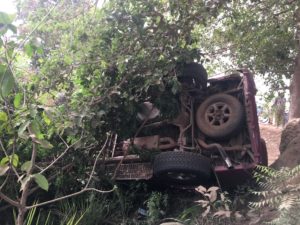
The Fatu Network visited the scene and spoke to one of the victims. He said there are no serious injuries.
DefaDoy Press Conference At Tango
A group of Gambians comprising members of the civil society and activists Friday organized a press conference to talk about their upcoming protest slated for Sunday, June 24.
Here are the details.
Interview with Army PRO on Civil Military Relations
Joint Civil-Military relations Training aimed at improving relationship between the security and the civilian population has just ended at The Officers Mess in Kotu.
Major Lamin Sanyang, PRO GAF explains
Faraba Banta To Bury Their Dead Saturday
Residents of Faraba Banta will on Saturday, June 23, bury their dead at the village at 2pm.
The three Bakary Kujabi, Amadou Njang Jawo and Ismaila Bah were allegedly shot by officers of the Police Intervention Unit (PIU) during a clash, will all be buried at the Faraba Banta burial ground tomorrow, a resident informed The Fatu Network. The Presidency has opened an inquiry to investigate the matter within a month.
Meanwhile, The Inspector General of Police, Landing Kinteh has resigned Thursday calling his actions ‘A command responsibility’. Landing Kinteh told The Fatu Network that the incident is an unfortunate one.
‘The fact that I was the head of the Police when my men allegedly did the killings, I feel I should step aside’ he said
Writer Says Fate Of Cuban Trained Doctors Still Unknown
Dear Editor,
It’s been a year and four months since 29 Cuban trained medical students completed their course and yet are to be recognized and registered by The Gambia Medical and Dental Council.
Between then, the whole country is silent about the faith of these aspiring, vibrant, first class citizens of this country. After being sponsored by our tax payers money. These graduants were selected in four corners of this country with the primary objective of “ Returning to their respective regions for service delivery upon completion of their programs “ – with the goal of promoting primary health care.
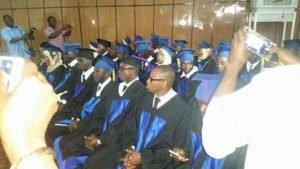
As a concern Gambian, I think 29 families are being psychologically traumatised by the unemployment status of our fellow brothers and sisters.
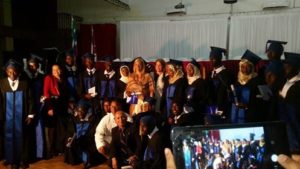
Therefore, as it was posted previously in this media which did not gain momentum, I hope this time around the whole country will stand for our fellow brothers and sisters in order to achieve a meaningful recognition and registration by The Gambia Medical and Dental Council.
I believe Fatu will also stand for them in terms of trying to get the facts.
Thank you.
A Critical Look Into The Faraba Banta Incident
On the 18 June 2018, Gambians woke up to disturbing news of clashes between police and natives of Faraba Banta. It was later learned that two people lost their lives purportedly from fire arms shot by police officers (now three). The unfortunate incident received the usual amount of rage and condemnation of police heavy handedness. Conclusions were drawn without thought and social media raved with people expressing sentiment without thinking twice.
All of sudden, personnel of the Gambia Police Force were labeled trigger happy and out to kill “armless and harmless environmentalists”the same to people they vowed to protect. Not many took time to question what might have truly happened, where and how it all started? There are so many questions but none seem to care, but rather busy being angry and vindictive for what they do not really understand. Can we at least sit back; stop embarrassing ourselves with uninformed conclusions and for a moment think, think big and objectively.
GAMBIA TODAY
In January 2017, Gambia embraced a new government after 22 years of Jammeh’s rule. The new Gambia hoped to usher in true democracy and the rule of law. One and a half years on, the desired Gambia seems a far-fetched and ever elusive dream. FACT: Criminality is on the increase, corruption has become more engrained, public dissatisfaction and disappointment is on the rise, civil unrest has become a norm, land disputes are on the rise, our own security is not trusted (ECOMIG present), impunity is common place (government’s silence over the Kanilai, Sibanor, Mankamang Kunda, Busumbala and other incidents is deafening enough).
FARABA – JULAKAY HISTORY
Julakay a Gambian businessman man got interest in sand mining and followed government laid down procedures in engaging in the business. The necessary papers were sought for and acquired (I wonder how though), Faraba Banta was identified and approved as mining site. Alkalo and some community heads were consulted and agreements were made (apparently a large part of the community were not aware). Like Seedy Barrow who is proven to have legal ownership of the disputed graveyard land in Tanenneh, Julakay had legal license to mine in Faraba Banta. Let me digress a little and add – (Gunjur – Green Lead, Sanyang, Monkey Park all are government licensed businesses). Note that none of these were issue by or with consultation with Gambia Police Force yet it is its responsibility to enforce law and order.
1stQUESTION: In order for Julakay to carry out his lawfully registered sand mining business, did the police need to put there a guard post?
WHAT HAPPENED IN FARABA ON 18/06/18
On the morning of 18 June 2018, police officers on guard duty at the sand mining site heard a voice on the village mosque public address system urging villagers to come out and protest against the mining in the village. Prior to this announcement, there was word that a member of parliament has told natives of Faraba that a National Assembly select committee on ……… had recommended that mining in Faraba cease. This prompted an angry and frustrated village folk to call for a forced cessation of mining activities.
To ensure that this unofficial recommendation was respected, an uninformed 7 member police guard post was confronted. Not by an armless and peaceful crowd, but by a group of villagers armed with clubs, stones, slings, gas grenades and local guns. These were a people who were genuinely angry over the exploitation of their environment and were bent on protecting what they belief is their own. For them, if their government is not able to protect their own, then they will do so by all means and God help the law enforcer standing in their way.
The officers were pelted with stonesand clubs and sensing that they were overpowered, they called for reinforcement but by the time that came; trucks, caterpillars and the guard post were vandalized or set ablaze by an armed, angry and violent crowd.
2ndQUESTION: Was this a peaceful march or riot?
WHAT DOES OUR LAW SAY?
Section 69 of Chapter IX of the Criminal Code of Laws of The Gambia, Unlawful assembly is defined – When three or more persons assemble with intent to commit an offence, or, being assembled with intent to carry out some common purpose, conduct themselves in a manner that causes persons in the neighbourhood reasonably to fear that the persons so assembled will commit a breach of peace, or will by the assembly needlessly and without any reasonable occasion provoke other persons to commit a breach of the peace, they are an unlawful assembly.
Section 72 talks about making proclamation for rioters to disperse. This can be carried out by a magistrate, a commissioned police or military officer of The Gambia commanding the rioters to disperse peaceably.
FACT:It has been confirmed that a commissioned police officer has made this proclamation using a public address system.
Section 73 states that if on the expiration of a reasonable time after the proclamation is made, or after the making of the proclamation has been prevented by force, twelve or more persons continue to riotously assembled together, a person authorized to make proclamation, or a police officer, or any other person acting in aid of the person or police officer, may do all things necessary for dispersing the persons so continuing assembled, or for apprehending them or any of them, and, if a person makes resistance, may use all such force as is reasonably necessary for overcoming the resistance, and shall not be liable in any criminal or civil proceeding for having, by the use of force, caused harm or death to any person.
Section 76 talks about rioters demolishing buildings, etc. It states that any persons who, being riotously assembled together, unlawfully pull down or destroy, or begin to pull down or destroy any building, machinery or structures commit a felony, and each of them is liable on conviction to imprisonment for life.
FACT:It has been confirmed that 5 trucks, 2 caterpillars a guard post and compounds were vandalized and or set ablaze.
IS GPF ADEQUATELY TRAINED AND EQUIPPED TO EFFICENTLY CARRY OUT ITS FUNCTIONS?
It is no hidden fact that personnel of GPF undergo not more than ten months basic recruitment training in an institution that lacks of proper training facilities. Furthermore due to resource constraints, not many professional capacity building programs are conducted. Additionally, GPF operates with almost no proper security equipment gadgets. Its Anti-Riot Unit lacks the necessary riot gear (armored vehicles, water cannons, rubber bullets, pepper spray etc.). They ill-equipped, receive a pittance, not motivated yet they are expected to be absolutely professional as if they are demi-gods.
FACT:The new wave of democracy in Gambia has ushered in an unprecedented level of civil disobedience which the country seems ill-equipped to handle. People wantonly break the law under the pretext of democracy. We have a problem that police alone cannot take responsibility of fixing and it would be unfair to use police as scapegoats for problems we all share.
PRESIDENT BARROWS ADDRESS TO THE NATION LEAVES A LOT TO BE DESIRED FOR
As head of state I commend him for coming out to condemn the deaths and order for investigations to be conducted. He however, fell short of condemning acts of violence and ordinary citizens taking the law into their own hands. This could encourage more civil unrest. Gambian’s are misconstruing the idea of democracy; they are deliberately exploiting the president’s softness and fast making the country ungovernable. We are walking a slippery path and what we need is a pragmatic and charismatic leader and not a pampering babysitter.
The IGP did not do well in claiming that he did not give orders for the use of firearms – well that has unfortunately demoralized police personnel and now one should wonder how prepared our men in blue uniform are in protecting our lives and properties. I should however, commend him for doing the honorable thing of resigning from the post.
CONCLUSION:
Until investigations are completed Gambians must continue to exercise patience and trust in the judicial system to bring those responsible for the death of the three natives of Faraba to justice.
Furthermore the law will have to take its cause on whoever must have taken part in the vandalising and burning down of homes and properties.
Government should also bring out the investigation reports on the Kanilai, Makamang Kunda, Busumbala and other similar cases it has conveniently stayed mute on. Unless justice is served without bias, the problems we are facing now will continue to happen.
BY A CONCERNED GAMBIAN


